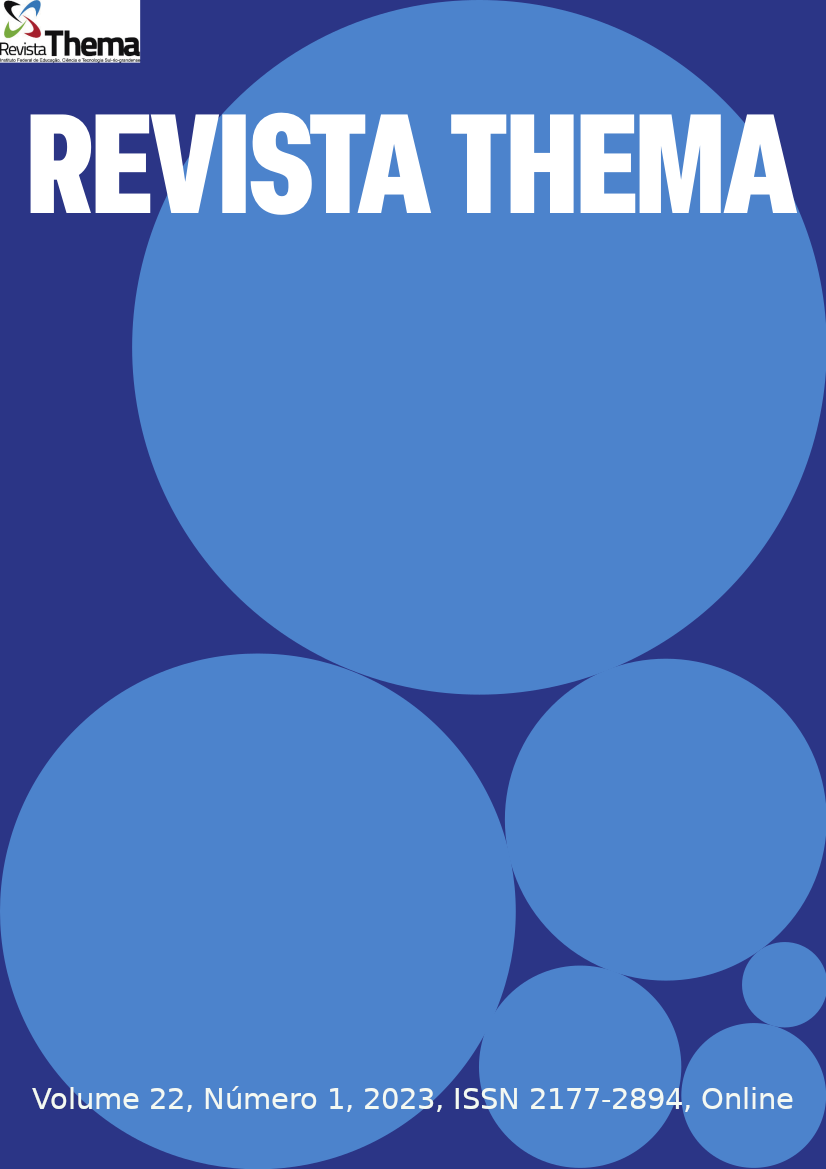The Alternance Pedagogy and Family Rural Schools in Brazil
a State of Knowledge from 2008 to 2019 in strictu sensu research
DOI:
https://doi.org/10.15536/thema.V22.2023.29-46.2503Keywords:
State of knowledge, Rural Education, Alternance PedagogyAbstract
This article presents State of the Knowledge research that points to the use of the Alternance Pedagogy in rural schools in Brazil, in addition to studies on former students from these institutions. The work comprised eight research studies, seven of which were dissertations and one, a thesis in the period from 2008 to 2019, a 12-year interval, found in the repository of the Brazilian Digital Library of Theses and Dissertations (BDTD) at the Brazilian Institute for Information in Science and Technology (IBCT) and at the Coordination of Improvement of Higher Education Personnel (CAPES). As a result, we point out the constant concern in improving teaching methods; the struggle for an education for/in the countryside aimed at the rural youngster, thus avoiding rural exodus; parents realizing the importance of school education for their children contrary to the secular view that schooling was not necessary to carry out daily activities in the region; the importance of such schools for regional activities and insertion in settlements, quilombos and indigenous communities in addition to emphasizing the importance of Family Rural Schools in a project of society in which Rural Education needs to be inserted.
Downloads
Downloads
Published
How to Cite
Issue
Section
License
O autor responsável pela submissão representa todos os autores do trabalho e, ao enviar o artigo para a revista, está garantindo que tem a permissão de todos para fazê-lo. Da mesma forma, assegura que o artigo não viola direitos autorais e que não há plágio no trabalho. A revista não se responsabiliza pelas opiniões emitidas.
A Revista Thema é de acesso aberto (Open Access), sem que haja a necessidade de pagamentos de taxas, seja para submissão ou processamento dos artigos. A revista adota a definição da Budapest Open Access Initiative (BOAI), ou seja, os usuários possuem o direito de ler, baixar, copiar, distribuir, imprimir, buscar e fazer links diretos para os textos completos dos artigos nela publicados.
Todos os artigos são publicados com a licença Creative Commons Atribuição-NãoComercial 4.0 Internacional. Os autores mantém os direitos autorais sobre suas produções, devendo ser contatados diretamente se houver interesse em uso comercial dos trabalhos.





